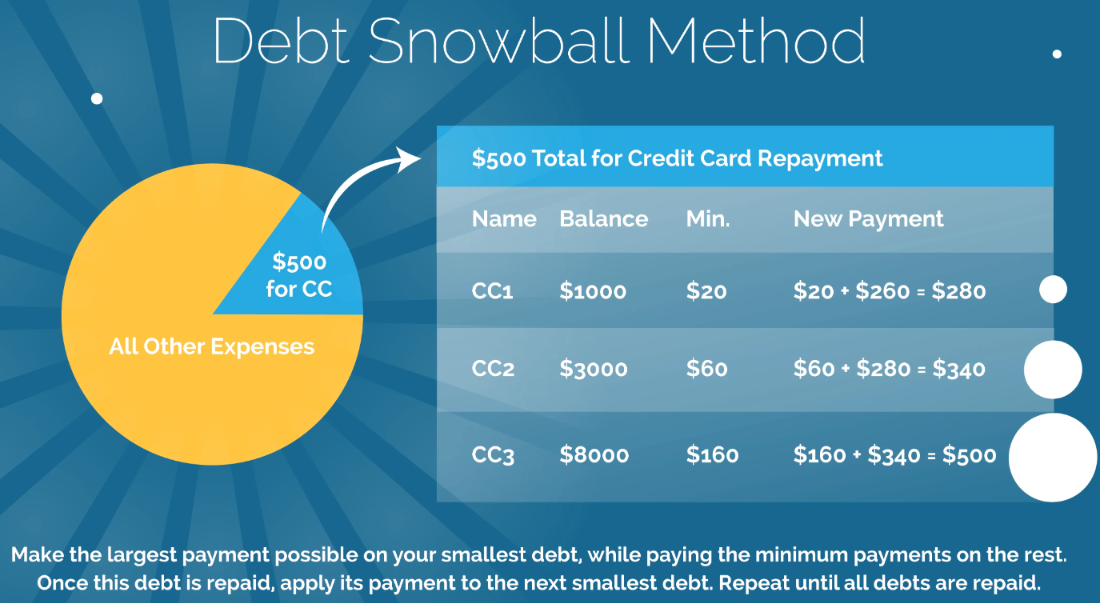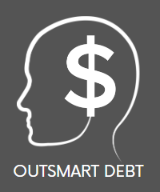As a nation, we’re hitting new records of debt. This debt crisis may soon become a mental health crisis. Debt is a complex and multifaceted issue that transcends mere numbers on a balance sheet. It encompasses a profound emotional dimension that can exert a significant toll on our overall well-being. Today, we will navigate the intricate web of emotions tied to debt, ranging from stress and anxiety to guilt and despair. We’ll also uncover strategies to reframe our relationship with money, shedding light on the deep-seated connection between our minds and our wallets. We’ll also look at some tools that can help us move past this burden of debt.
Understanding the Emotional Aspects of Debt:
Debt is far more than a financial burden; it is an emotional weight that permeates various facets of our lives. The emotional impact of financial debt extends well beyond mere worry about monthly payments or interest rates. It introduces pervasive stress and anxiety that can become a constant burden in our daily lives. The gnawing fear of not being able to meet financial obligations can infiltrate every aspect of our existence, affecting our relationships, our professional pursuits, our physical health and our overall sense of happiness. In fact, just writing about debt makes me tense up.

Overcoming Shame and Guilt Associated with Debt:
One of the most insidious aspects of debt is the shame and guilt it often brings in its wake. These emotions create a destructive cycle that is challenging to break free from. Individuals mired in debt frequently berate themselves for their perceived financial mistakes. Often, we’ll find ourselves hiding our debt from loved ones or lying about it’s existence which further exacerbates the psychological distress. To break this cycle, it is vital to delve into strategies for confronting and managing these negative emotions. Self-forgiveness is a key component, allowing individuals to release themselves from the heavy burden of guilt. Embracing a more positive outlook is equally significant, fostering resilience and optimism in the face of financial challenges.
Exploring the Psychology of Spending and Financial Habits:
Our spending habits, which profoundly influence our financial destinies, are deeply rooted in psychological patterns that often develop early in life. These patterns are shaped by a myriad of factors, including family modeling, societal norms, and personal experiences. To understand how we arrived at our current financial predicament, we must embark on an introspective journey to unearth the underlying motivations that have driven our financial choices. Recognizing the psychological triggers behind impulsive spending or decisions that lead to debt accumulation is essential to making informed, proactive, and sustainable financial choices moving forward.
Cognitive Biases that Affect Our Financial Decisions:
Cognitive biases, subtle mental shortcuts hardwired into human cognition, play a significant role in our financial decision-making processes. From the optimism bias, which leads us to be overly optimistic about the outcomes of financial decisions, to the status quo bias, which pushes us beyond our comfort zone even when we know it is detrimental to our financial health, these biases can lead us astray. Recognizing our predisposition to these biases allows us to adopt strategies to mitigate their influence on our financial decisions.
Strategies to Reframe Your Relationship with Money:
Overcoming debt necessitates a profound transformation in our relationship with money. It requires shifting from a scarcity mindset, characterized by feelings of lack and insecurity, to an abundance mindset that fosters a healthier attitude toward spending, saving, and achieving financial goals. This transformation is not merely superficial; it represents a fundamental shift in how we perceive and interact with our financial resources. It empowers individuals to make choices aligned with their long-term financial well-being rather than reacting to immediate financial pressures. By embracing this new mindset, individuals can cultivate financial habits that promote sustainable wealth-building and debt avoidance.
Seek Out the Tools That Fit Your Personality:
While a mind-shift is an absolute must, the burden of debt won’t simply go away without significant effort. Fortunately, there are a myriad of tools available to assist with this worthwhile endeavor. There are a number of budget worksheets designed to help you identify areas where you are hemorrhaging cash and help determine what debt should be tackled first. While student loan and medical debts can be significant in size, it’s most often the credit card debt that can be the most daunting. Consider attacking unsecured debt, such as credit cards and personal loans with the assistance of the Debt Snowball or the Debt Avalanche methods. Both are good plans. It just has to be something that you’ll stick with. If you find it difficult to set up or stick with a plan, you may want to consider the purchase of a software program called the Money Max Account (MMA). This link will take you to a video to learn about it.

Creating a Supportive Environment for Financial Change:
Achieving debt-free goals is significantly enhanced by surrounding oneself with a supportive environment. As a mortgage lender, I’ve had dozens of clients that would remain in touch with me seeking advice or just an occasional verbal pat on the back. Seeking guidance from mentors or financial advisors provides access to expertise and valuable insights that can streamline the journey to financial freedom. Finding a community that understands your financial journey offers camaraderie and motivation, serving as a source of inspiration during challenging times. Building this supportive ecosystem is pivotal for maintaining momentum, overcoming obstacles, and ultimately achieving debt-free goals.
Techniques for Managing Stress During the Debt Payoff Process:
The journey to debt elimination can be a stressful endeavor, marked by uncertainty, anxiety, and tension. Effective stress management is not merely a luxury but an essential component of maintaining overall well-being during this demanding journey. Exploring relaxation techniques, mindfulness practices, and stress-reduction strategies equips individuals with the tools to stay centered and focused as they work tirelessly toward financial freedom. These techniques not only provide immediate relief from stress but also contribute to a sustainable and resilient approach to debt elimination.
Long-Term Psychological Benefits of Achieving Financial Freedom:
While the ultimate goal of overcoming debt is to achieve financial freedom, the benefits extend far beyond the mere elimination of debt. The enduring psychological rewards are transformative and profound. These rewards include heightened self-confidence, reduced stress and anxiety, enhanced overall well-being, and a growing sense of empowerment over one’s financial future. Recognizing and appreciating these long-term psychological benefits can serve as a powerful source of motivation throughout the debt-elimination journey. They represent the ultimate prize – a life liberated from financial stress and enriched with a sense of personal and financial empowerment.
Conclusion: The psychology of overcoming debt is a complex and multifaceted journey. By addressing these psychological factors alongside the financial ones, individuals can pave the way for lasting change, a brighter financial future, and enhanced overall well-being. The journey to debt-free living is a holistic transformation, encompassing not only financial numbers but also the regaining of control over one’s life and emotions, ultimately leading to financial well-being and peace of mind.





